|
Such a delight to be partnering with renowned community artists Jyllie Jackson OAM and her Lismore LightnUp team on the Queer Angels project - part of our Faith @ World Pride initiatives. Two of the larger Queer Angels are now in production in Lismore - despite the latest bout of flooding - part of our Faith @ World Pride initiatives at Pitt Street Uniting Church Sydney with Equal Voices and other faith and community partners.
0 Comments
One of the most encouraging aspects of the Australian theological scene is the work of the Australian Collaborators in Feminist Theologies. Based at the University of Divinity, Melbourne, this vital network has considerably inspired and supported me in recent times and will, I hope, continue to grow in strength and influence. Personally I am thankful to this project and its leaders to have an essay (entitled 'From Footballs to Matildas? - Gender Diverse People and Theological Game Change') included in the forthcoming book Contemporary Feminist Theologies: Power, Authority, Love - part of Routledge's 'Gender, Theology and Spirituality' series. I am also pleased to share in the Horizons series of online conversations which the Collaborators run on a monthly basis. This month, I am myself a focal point, chatting with Dr Cath McKinney about intersectionality, not least the challenges and opportunities of gender diverse people within feminist developments (link to event here). Here below - and at this link - is a short reflection to stimulate thought and discussion...
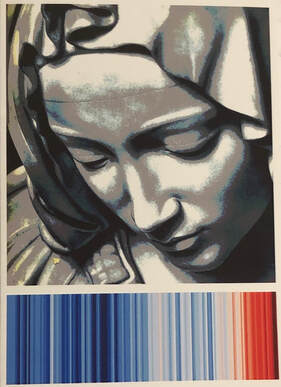 On this New Year's Eve, 4 000 people took refuge from bushfires on the beach at Mallacoota in Victoria. The dramatic pictures - full of burning, smoke, and red skies - understandably drew forth words such as 'apocalyptic'. With two more lives lost today, together with many houses, the unprecedented series of bushfires across Australia cast a strong pall over the nation. The evacuation on the beach is but one powerful symbol, but, in the apocalyptic mood, it vividly makes fact the fiction of the famous film On the Beach (released in 1959, starring Gregory Peck, Ava Gardner and Fred Astaire), with its Melbourne 'end of the world' scenes. This is not the product of nuclear devastation however, but of the wilful neglect of decades of climate research and the 'she'll be right' blinkered stubborness of so much Australian and worldwide 'leadership'. It is a fierce verdict on such self-obsessed, and ultimately self-destructive, politics which have been so prominent in so much of the world this year. At the turn of this year therefore, lament, rather than looking forward, may seem most appropriate. What hope do we find?... 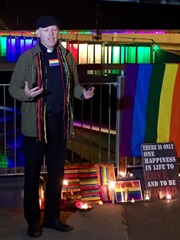 The terrible killings in Orlando seem to have a number of complex dimensions and even the FBI have a great deal of work to do in establishing the background and dynamics - not helped by Trump and co. It is a little difficult therefore (unless one is Donald Trump) to be too dramatic in reflection on it. Yet, as we shared a moving vigil last night in my regional community of Toowoomba - organised through the gradually emerging local LGBTI community - I was also left wondering whether this horrendous event may yet be part of a watershed. I am struck, for example, by the way in which several US Catholic bishops have responded in a sensitive and humbled manner to LGBTI people. Maybe such awful carnage may bring some to at least slow the sex and gender wars? Certainly in my community, amid the sorrow and solidarity, there was a sense in which such an event cannot roll back the past but rather it will empower us to a new level, finally nailing homophobia, for example, as what it is - a (self) destructive mental illness afflicting individuals, particular groups and society as a whole. In my community, this was only the second time the local council had also affirmed the LGBTI community publicly - lighting up a new central (Victoria Street) bridge in rainbow colours (and a good deal more easier to get permission this time round than for IDAHOT recently) - and I was impressed by the brilliant mutual networking at such short knowledge and the articulate confidence of some of our young people attending: light in the darkness for sure Last week I heard Susan Cottrell, a strong US Pflag and LGBTI ally, speak about the journey she has made with the LGBTI community. Someone asked if marriage equality had made a positive difference in the USA - yes, she said, but also no: it had driven some hardliners into deeper denial and anger about their 'defeat'. Perhaps the Pulse killings are a symptom of that negative aspect. I suspect however that they may also be impelling a fresh decisive stage in the growing watershed of more compassionate change. 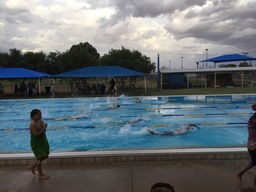 At the heart of the community of Cunnamulla in western Queensland is the town swimming pool. As in many Indigenous, or Indigenous-majority, communities, it plays a central role in fostering community, health, connections and life of various kinds. In Cunnamulla this is certainly notable, not least through the marvellous work of Marianne Johnstone who not only manages the facilities, including the 50 metre olympic-style pool, but wonderfully trains and leads swimming, triathlon and other activities. One of the highlights of our recent diocesan Reconciliation Action Plan initiative in Cunnamulla was therefore the Saturday afternoon swimming gala. The climax of this was the invitation relay race, led by the local mayor Lindsay Godfrey. Our group was encouraged to join in and bishop Cameron Venables and local Anglican Minister Steffan van Munster duly stepped forward to help form a team which came a very creditable third (the winners being an able relay of local Aboriginal young men). It was a powerful symbol of both Cameron and Steffan's ministry among local communities. Instead of simply sitting on the sidelines, or dispensing prizes (though bishop Cameron did that too!), they plunged right into the heart of community life, literally getting soaked in the process. Plunging into the pool is a powerful metaphor for what Christians call the incarnation, the way of Jesus which involves plunging fully into all life has to offer and all of the human condition. Sometimes Christianity, and Christian theology, has been a bit of an, albeit usually kindly and well-intentioned, onlooker activity. Getting wet however is not a real option for genuine ministry and mission. Gustavo Gutierrez, the great Latin American pioneer of liberation theology, reflected that a truly incarnational theology is 'the second act', after the commiitment to life, justice, solidarity with the poor, peace and reconciliation. This is certainly true of the journey of Australian Reconciliation as well as faith development in general. What of my involvement in the pool, you might ask? Well, being a water-challenged person on account of my very British and rural upbringing (far from the unwelcoming cold seas around the UK and at a distance from a pool like Cunnamulla's), I did not myself jump in that pool, although I did offer to join either the running or cycling leg of any similar triathlon. Yet I hope that, in other things I do, I also have the faith to keep plunging in the pool of life. We also have to reflect but active participation is vital. Jump in, as they say in Cunnamulla, the water is wonderful. 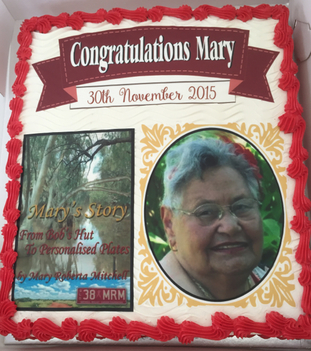 It was a delight today to host a local - Toowoomba - launch of Aunty Mary Mitchell's autobiography Mary's Story (published by Mulga Mob Publishing) A wonderful Aboriginal lady. Aunty Mary has been at the loving heart of her family, community and church throughout her life and her story is one of heartache and joy. Born in 1938 at a place called Bob's Hut, Tilbooroo Station, Eulo in Queensland, she has lived her whole life around the Cunnamulla/Eulo area. She has been in Toowoomba recently to receive an award from the Cancer Council for her wonderful voluntary work and it seemed too good an opportunity not to celebrate her life together with others and share her book more widely. We were joined today by a very good mix of family and friends from Toowoomba and much further west, form church and much wider community relationships. It was another living witness of how community building and Reconciliation is all about people, embodied in marvelous examples like Aunty Mary. 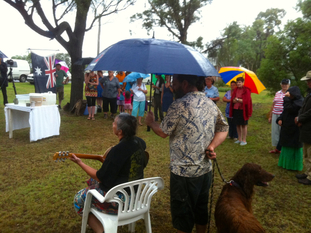 One of the wonderful unexpected outcomes of our flag washing on Australia Day was a phone call I received from an active member of the Lock the Gate Alliance. This is a national coalition of people from across Australia, including farmers, traditional custodians, conservationists and urban residents, who are uniting to protect our common heritage - our land, water and communities - from unsafe or inappropriate mining for coal seam gas and other fossil fuels. The person who rang was unknown to me yet had felt moved to contact me by photos she had seen of our event. She expressed deep thanks for the gathering, telling me about her involvement with local people in Acland and further afield who had been so negatively impacted by unbridled mining development. She lives interstate but the photos of the event brought home to her the powerful mix of courage in adversity and deep distress in the people she had encountered. As a filmmaker trying to share such stories, she had frequently been torn, she said, by the need to encourage such people to tell of their experience whilst not seeking to make things worse. Initiatives like yours, she said, are so valuable as they provide people with something and somewhere to hold their grief, space for mourning, for healing and for hope beyond hope. She was, she said, today at best a non-observant Buddhist, yet she knew this was so needed. It was a marvelous conversation, not just in justifying (if that were required) our gathering on Australia Day, but also in reminding me of the deep need we have in our contemporary world for meaningful community rituals to help hold share out common humanity and build solidarity in the midst of our pain and joy, our fears, hurts and hopes. For millenia the great spiritual and religious traditions of the world have offered this. They can still do much, if they are open to listen, to development and to creative partnership with others. We need also however, whatever out religious traditions or none, to respond afresh to the movements of challenge and grace in our own day. This has given me food for thought and, I hope, inspiration for further action. Indeed, my phone partner also reminded me of the work of another heroine of mine: Joanna Macy, an activist Buddhist who has so enriched us with her own creative community rituals, touching the depth of our hearts and the soul of our troubled yet astonishing world.  At the end of this year a very fine west Durham voluntary and community sector body closes. Yesterday a party was held to celebrate its achievements. Those involved kindly remembered my early contribution (as its first Chair) and asked me for a few words of my own. I was only too glad to respond. For I am immensely grateful to have been part of the 2D journey in the early days. Indeed it was the very best thing I ever did in my native county Durham, not least because of so many truly canny people who were involved. So, though it is sad to talk about closure, I know that the spirit behind 2D will never fail. It reminds me of a local story. For, back in the 18th century, a Queen of England once asked what had happened to a particular clergyman. ‘Is he dead?” she asked. ‘No’, came back the answer, ‘he is just the Rector of Stanhope – he is not dead, just buried.’ ‘Not dead, just buried’: those might also be appropriate words for 2D at this time. For 2D’s secret has always been the love and life which have been poured into the people and places of the Durham Dales – so many seeds of encouragement, commitment and inspiration, which have borne such great fruit, accompanied by so many typical moments of humour and solidarity against the odds. Such things won’t just be memories but will continue to blossom. For they are buried in the hearts and lives of all of us who have had the joy and privilege of walking together with 2D: whether for a short while, or for all, or most, of its existence. I am thrilled by what 2D has gone on to achieve. May God continue to bless everyone in the next steps of new life. |
AuthorJo Inkpin is an Anglican priest serving as Minister of Pitt St Uniting Church in Sydney, a trans woman, theologian & justice activist. These are some of my reflections on life, spirit, and the search for peace, justice & sustainable creation. Archives
July 2024
Categories
All
|
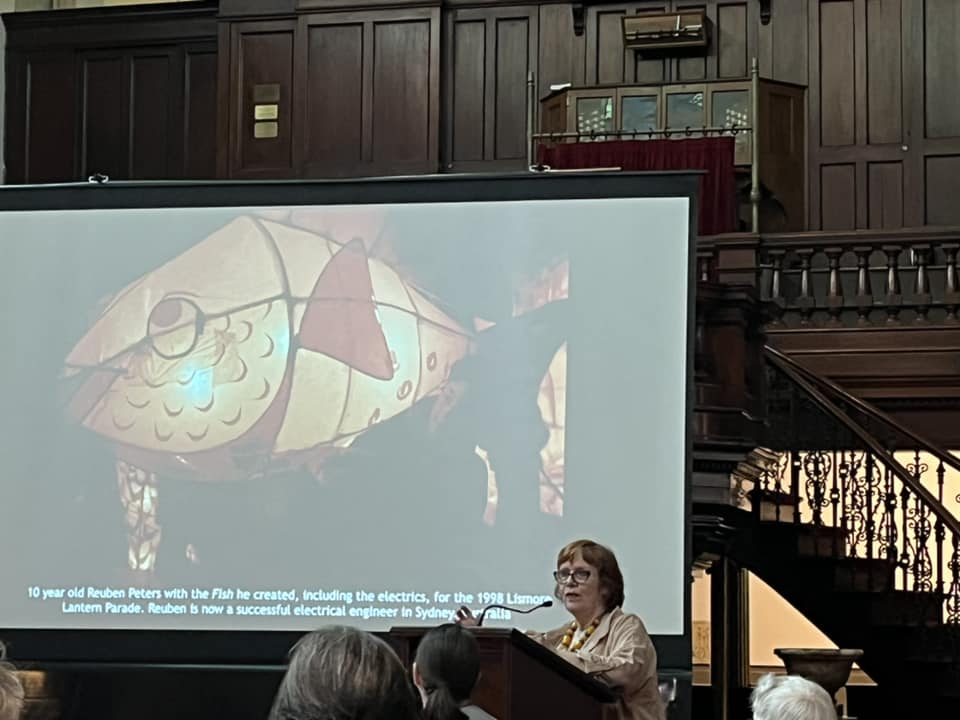
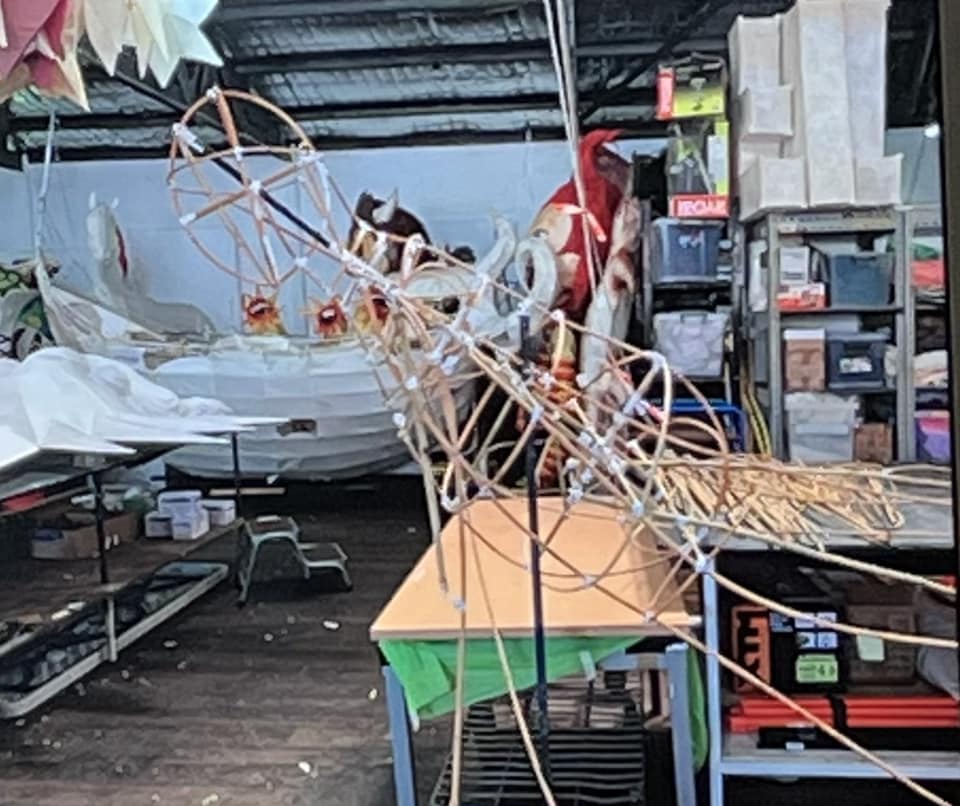
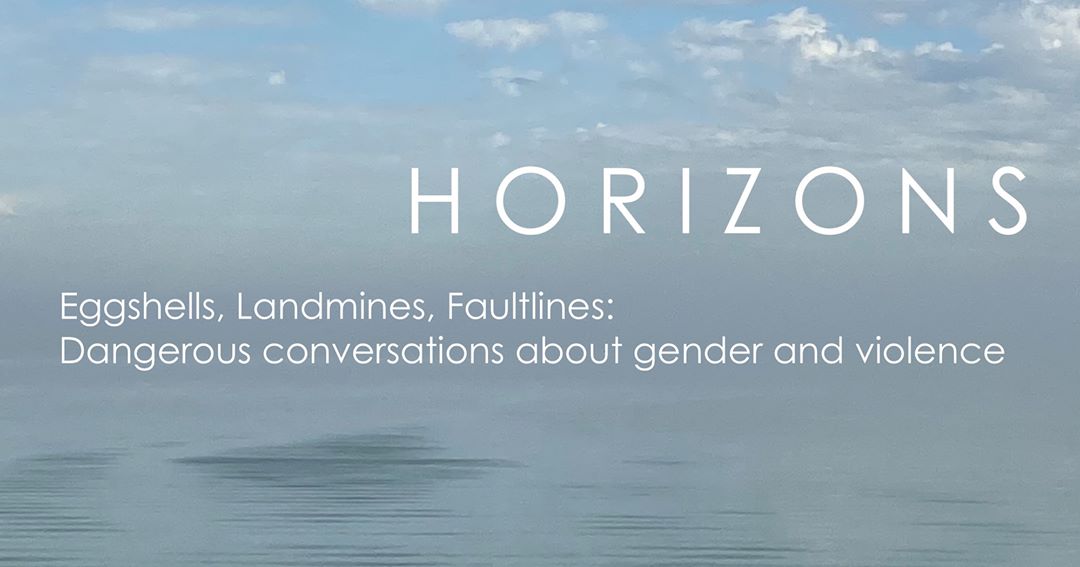
 RSS Feed
RSS Feed